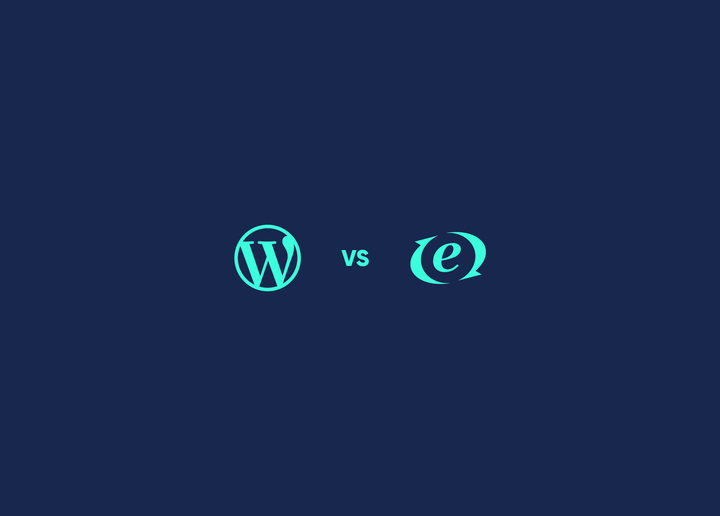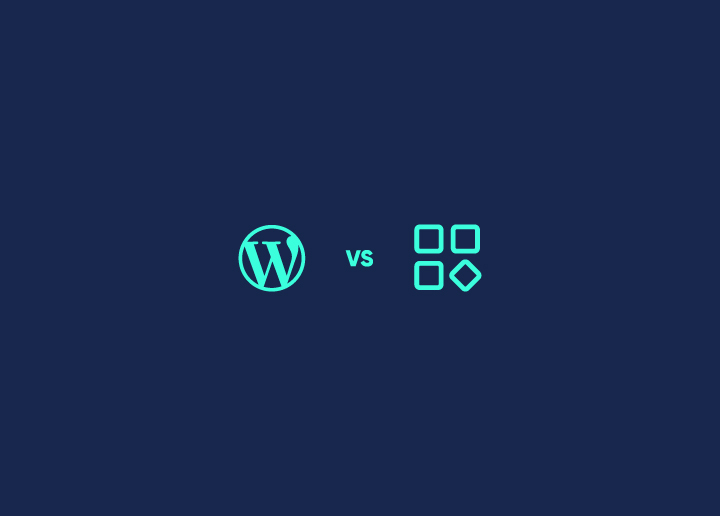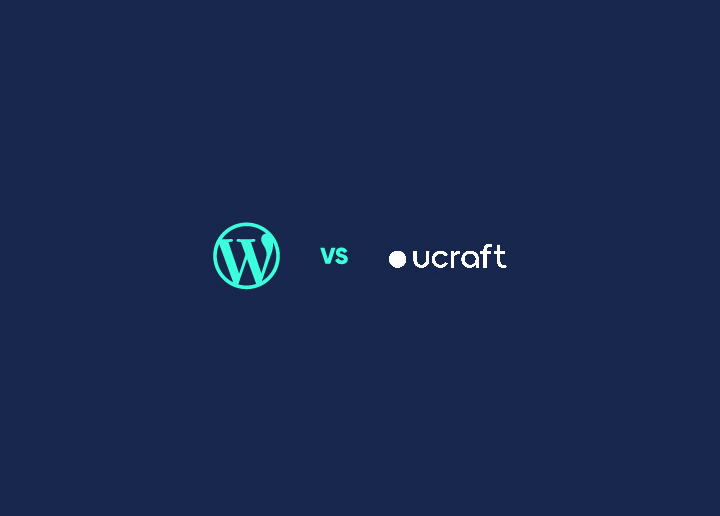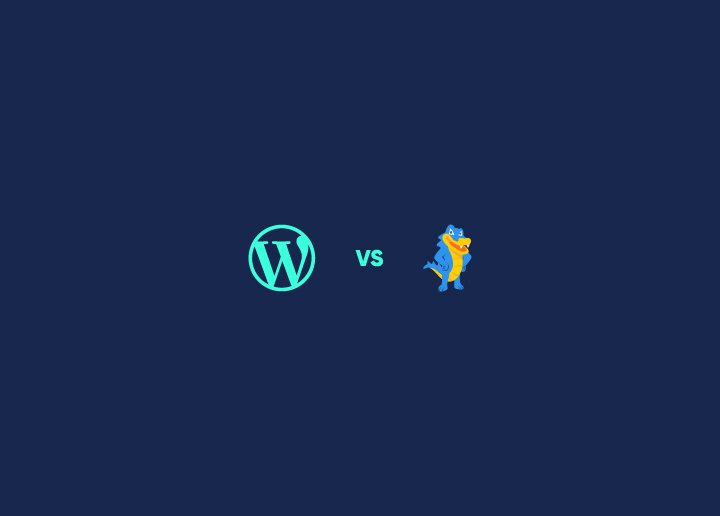WordPress vs ExpressionEngine compete closely as open source Content Management Systems (CMS) capable of publishing management of diverse online content. Despite similarities, each CMS varies in content creation methods and built-in features for the development of your website.
Comparing WordPress vs. ExpressionEngine involves assessing publication to determine content score, page customization, security, e-commerce, and more. Our analysis in this article will facilitate informed decision-making for your website’s needs.
Contents
ToggleWordPress vs ExpressionEngine: Who Needs to Know About This?

Understanding the differences between WordPress and ExpressionEngine empowers site users to choose the CMS that best aligns with their website’s objectives and functionality requirements.
It’s crucial for various stakeholders involved in the process of running a website to understand the distinctions between WordPress and ExpressionEngine:
- Designers and Developers: They need to know the differences to select the most suitable platform for building and customizing websites efficiently.
Read More: Best Sites to Hire WordPress Developers & Designers
- Content Creators: Understanding these CMS options helps them choose the platform that offers the best content creation and management features.
- Marketers: Knowing the disparities aids in selecting the platform that aligns with their marketing strategies, such as meeting standard SEO needs and content distribution.
- Business Owners: Being aware of the contrasts assists in making informed decisions regarding website management, security, and scalability.
Choose WordPress for Superior Website Solutions!
Elevate your website with Seahawk’s unparalleled WordPress development expertise.
Comparing WordPress to Expression Engine

Despite WordPress’s widespread popularity, ExpressionEngine offers a robust alternative with unique features like a template-based approach and more granular control over content structure.
WordPress vs ExpressionEngine: Publishing Functionality
WordPress simplifies content creation and organization with categories, tags, and a straightforward editor. ExpressionEngine offers more advanced tools like custom fields, content versioning, and flexible content modeling.
Concerning publishing workflow, ExpressionEngine empowers teams with granular permissions, multi-step approval processes, and scheduled publishing. WordPress lacks built-in workflow management, but plugins can extend functionality.

WordPress uses a theme-based template system, while ExpressionEngine’s template engine provides more control over markup and logic separation.
ExpressionEngine is crafted for large-scale, enterprise-level content management, with robust performance and scalability. It aligns seamlessly with the best web design tools designers use to make WordPress handle substantial traffic with caching and optimization.
WordPress vs ExpressionEngine: Variety of Customization Options
As far as customizations are concerned, WordPress excels in user-friendly theme customization and its extensive plugin ecosystem. ExpressionEngine shines with its robust templating system and granular control over content modeling and permissions.
In terms of theme and template customization, WordPress offers extensive theme customization through child themes and a user-friendly customizer. ExpressionEngine provides deeper template control with its robust template language and tag system.
In WordPress, customizing content presentation is primarily theme-driven. ExpressionEngine allows granular customization of content output using custom fields, relationships, and templating logic.
With front-end editing, WordPress facilitates front-end editing through page builders and visual composers. ExpressionEngine lacks built-in front-end editing capabilities but supports it through third-party add-ons.
Also Read: WordPress Contributors Propose To Rename Full-Site Editing
Lastly, WordPress has a vast plugin repository for added functionality. ExpressionEngine has a smaller but robust add-on ecosystem tailored for its enterprise user base.
User Roles and Permissions
Both offer role management, but ExpressionEngine provides more granular control over user permissions for different sections and content types.
WordPress vs ExpressionEngine: Themes and Templates
WordPress offers a user-friendly theme system ideal for rapid website development, while ExpressionEngine’s robust template engine grants more control and flexibility, better suiting complex, data-driven projects.
WordPress heavily relies on themes to control site presentation. Themes dictate layouts, styles, and front-end functionality. While powerful, customizing themes requires knowledge of WordPress coding standards.
ExpressionEngine’s template engine separates markup and logic, allowing more modular, data-driven designs. The robust templating language offers fine-grained control over content output.

Learn More: Best Websites to Get WordPress Themes & Templates
WordPress promotes code reusability through Child Themes, which inherit functionality from parent themes while allowing customizations without modifying the original codebase.
ExpressionEngine supports modularizing templates using embeds and template partials, streamlining code maintenance and encouraging DRY (Don’t Repeat Yourself) principles.
WordPress themes, while visually appealing, can impose structural limitations. ExpressionEngine’s decoupled approach to templates affords greater design flexibility.
WordPress manages themes as monolithic packages, while ExpressionEngine allows granular control over individual template files, enabling collaborative development workflows.
WordPress vs ExpressionEngine: Security Coverage
While both systems implement security measures, ExpressionEngine’s commercial model, granular permissions, and code audits may offer a more robust security posture for enterprises with stringent requirements. However, diligent maintenance and hardening are essential for optimal security on either platform.
Both platforms prioritize security, regularly releasing updates to address vulnerabilities. However, WordPress’s open-source nature exposes it to more potential threats. As a website owner, you can be aware of common security mistakes and avoid them.
WordPress’s vast plugin ecosystem increases the attack surface. ExpressionEngine’s commercial model and stricter add-on vetting process may provide better third-party code security.

ExpressionEngine offers granular user permissions and content access controls, crucial for enterprises with strict security requirements.
Keep Reading: Best WordPress Security Service Providers (And Plugins)
As a commercial product, ExpressionEngine’s codebase undergoes regular audits and reviews by its developers, potentially identifying and mitigating risks more promptly.
WordPress facilitates automatic core updates, ensuring installations remain current with the latest security patches. ExpressionEngine requires manual updates, though controlled releases may appeal to risk-averse organizations.
While not inherent to the platforms, managed WordPress hosting often includes security hardening and malware scanning. ExpressionEngine’s hosting requirements are more flexible.
Conclusion
In conclusion, while WordPress and ExpressionEngine are both capable content management systems, their strengths lie in different areas. WordPress’s ease of use, massive community support, and extensive plugin ecosystem make it ideal for smaller websites and blogs.
On the other hand, ExpressionEngine excels in enterprise-level content management, offering robust security, granular permissions, and a flexible template system better suited for complex, data-driven projects. Ultimately, the choice between the two platforms depends on the project’s specific requirements, the desired level of control and customization, and the resources and expertise available within the organization.




















